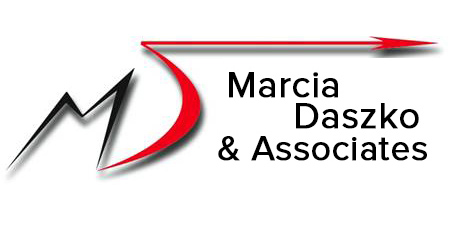Fundamental Thinking for Success
/Written by Marcia Daszko in June 2015
Here are some basics for success. Are these concepts robust and deep in your organization?
COMPELLING AIM/PURPOSE. What are we trying to accomplish TOGETHER to serve our customers or members? Your aim is NOT to make money. That is a result of leading your organization as a system.
CLEAR, FREQUENT COMMUNICATION. (multiple times daily with every constituency you interact with; for example if you lead a school, you communicate your Aim to teachers, students, staff, parents, the community, politicians, repeatedly so that everyone understands it and how you all need to work together to support it.)
QUALITY. What if most of your conversations started with a focus on Quality: quality work, communication, sharing, helping each other, engaging with the customer, satisfaction? It would be very different than having meetings about the bottom line.
LEADERSHIP. A team of interdependent, cross-functional leaders need to have robust conversations about how the parts of the organization need to work together. This team needs to manage the interactions to optimize the results. This means challenging current beliefs, assumptions, “best practices,” and maybe even management fads (that everyone else is doing.) It means questioning almost everything you do and the way you’ve “always done it” to make it not only better, but BOLD and DIFFERENT!
PRIORITIZE AND FOCUS. What are the key issues and opportunities? Every meeting (effective meetings do have immense value) needs to prioritize and focus its time and energy on these issues that will move the progress forward. Leaders focus people to work together on these issues.
LEARNING, WORKING, AND IMPROVING TOGETHER. With a clear compelling purpose, people who join and contribute together can do creative and challenging work. This creates meaningful lives and serves customers. It means being open to new, continual learning (this is essential for transforming an organization.) This is more than “team building;” it is actively asking “How can I be of help? How can we accomplish this together? What do WE need to do to get the job done and serve our customer?” “It’s not that hard” to make a difference, especially if everyone is committed to it.
REMOVING FEAR, OBSTACLES, AND BARRIERS. Managers need to reduce the fears and remove barriers to improvement. This is powerful and necessary. There are hundreds of kinds of fears and they show up in bad, disrespectful, and dysfunctional behaviors. Discuss the fears (key fears are of losing a job, change, speaking up, making mistakes.) Build trust through communication and respect. To create a new culture, do not tolerate the poor behaviors, including from managers.
MAKING DECISIONS. Make decisions based on studying data in context and over time. It is easy to track data for your key processes (ask, “What bugs us?” and track it.) Everything will vary, but if you have data, opinions will have less meaning. “It’s not that hard” to make better decisions. Plan what you’re going to do; do it; study how it worked; then keep what works and move on to plan/do it again.
MEASURES OF PROGRESS AND SUCCESS. It’s easy to see the results. But if you don’t like the results, it’s too late to change them. As you’re doing your work, measure how it’s going over time. That’s process data. Then look at the results data. When you look at your measures, go back to the Aim. Are you accomplishing what you intend? Are you getting the results you want? If not, you may need to learn something new together, re-design the system, or engage with your customers.
FUN. Have fun and make a difference. If you can’t influence continual improvement, go somewhere where you can. If you can lead, continue to develop your natural leadership.
IT’S SUMMERTIME! TAKE A BREAK FROM YOUR OLD THINKING AND HABITS
It’s easy and comfortable to have habits. Some make us very efficient. But old habits can get us into a rut? How will we be cool, innovative, and awesome if we do the same things everyday? This summer, take a break from the old, and dive into some new things. When you’re at the airport, choose magazines to read that you wouldn’t typically buy and get new perspectives. Try a new sport or restaurant. Make new friends. Go to an event, concert, or movie that wouldn’t be your typical choice. Travel to a different city or country. Learn, experience, and have fun! Share your experiences with me!



